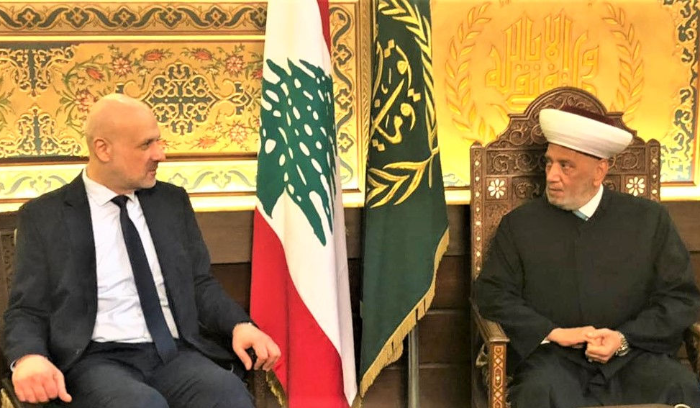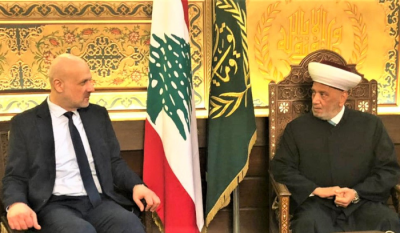The Minister of Interior in the caretaker government, Bassam Mawlawi, affirmed that "the security forces are making significant efforts to investigate crimes as quickly as possible." He added, following his visit to the Grand Mufti of the Republic, Sheikh Abd al-Latif Daryan: "Regarding the Syrian displaced persons, those without legal residency should leave Lebanon, in addition to those who do not have security reasons preventing them from living in their homeland, in order to preserve Lebanon and the Lebanese people." He continued: "His Eminence pointed out the pressure Lebanon is experiencing due to the Syrian presence and the need for the government to find a solution to this issue."
When asked about occasional security lapses in some Lebanese areas, he responded: "The security situation in Lebanon, compared to other countries, can be likened to security incidents occurring in countries like Europe and America. I say to the citizens: You are viewing the security problem with astonishment; rather, you should also look at how quickly the security and military apparatus performs its duty of maintaining security, apprehending criminals, and bringing them to justice." He noted that "criminal offenses occur anywhere, and there are crimes that cannot be anticipated. It is worth noting that security in Lebanon works proactively and effectively, while some crimes cannot be anticipated or avoided, such as the tragic murder of Mr. Al-Turk in Ashrafieh, due to a Syrian maid living with him at home. However, criminal activity exists everywhere, and the security forces are fulfilling their duties, promptly uncovering crimes while exerting considerable effort to maintain security and order. In Tripoli, there was a security plan at the end of Ramadan to restore citizens' and traders' confidence on the eve of the holiday. We are also on the verge of implementing a security plan to enforce order further in Beirut specifically and in areas experiencing some chaos, while certainly considering the interests of Lebanese citizens and appreciating the difficult circumstances we are undergoing."
When asked if a change could be felt, especially after the government's recent decision regarding the new mechanism for displaced persons, he replied: "Yesterday, the government issued recommendations since the cabinet did not convene as a council of ministers. In the Ministry of Interior, since last year, in May and then in October, we have issued circulars and memos for governors, district heads, and municipal presidents to implement Lebanese laws. Some municipalities have responded and have indeed begun taking actions. This also encourages us to continue following up on these measures. Municipalities that have not complied as required must adhere to the procedures. This issue has consensus in Lebanon; the Lebanese and national consensus is regarding the treatment of – I call it the treatment of the Syrian displacement issue – and this is not done through racism, revenge, or spite, God forbid. This issue is in the interest of Syrians returning to their country to rebuild it, as Syria needs rebuilding and its sons, as well as in the supreme interest of Lebanon. We call in this matter for taking into account the supreme interest of Lebanon and considering the interest of Syrians in their safe return to their country to rebuild and reconstruct it. We also call for seizing the Lebanese consensus on this issue to achieve results."
When asked if there is a green light from the international community for the return of Syrian displaced persons to their country, he answered: "This matter is being handled by the Lebanese government and its president, along with the Minister of Foreign Affairs, through diplomatic communications with the European Union in particular and with the international community in general."




